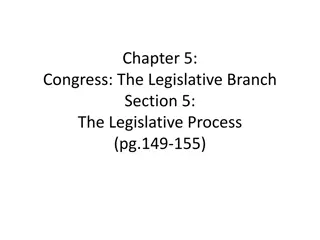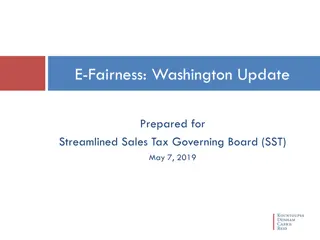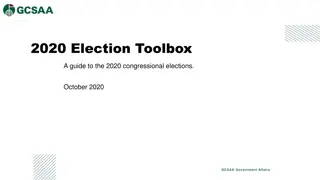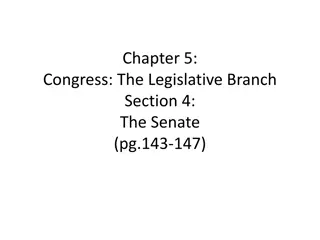The Politics of China: House & Senate Competition Bills
The politics surrounding China have become a focal point for both Democrats and Republicans in the U.S., particularly in relation to trade policy. The House and Senate have been engaged in a competition of bills regarding China's economic practices and their impact on U.S. workers and businesses. The dynamics between the two chambers, including rare moves and attempts to attach provisions, reflect the complexities of addressing China's role in global trade relations.
Download Presentation

Please find below an Image/Link to download the presentation.
The content on the website is provided AS IS for your information and personal use only. It may not be sold, licensed, or shared on other websites without obtaining consent from the author. Download presentation by click this link. If you encounter any issues during the download, it is possible that the publisher has removed the file from their server.
E N D
Presentation Transcript
House & Senate Competition Bills and the Politics of China
China Politics Since President Trump effectively used China as a political wedge in the 2016 election, Democrats and Republicans have both worked to show voters they are Tough on China . As President Biden took office many observers hoped for a return to the George W. Bush and Obama era policy of intensive engagement with China and a step back from tariffs. That has not happened. While the Biden team has engaged with China, Section 301 tariffs remain in place.
As the U.S. Trade Representative said in a recent report to Congress: For many years, the core objective of U.S. trade policy toward China was to make China a more responsible stakeholder at the WTO. Currently, however, it has become widely accepted in the United States that China s approach to the economy and trade has not moved toward a stronger embrace of open, market-oriented principles and instead has seen a doubling-down on state capitalism with Chinese characteristics, which has severely harmed U.S. workers and businesses.
The Senate Acts First: In a rare move, Schumer decides to use regular order to move the Senate competition bill in 2021, which allows amendments. The Senate bill initially did not include any trade items. Finance Committee Ranking Member Mike Crapo insisted on a trade title, using language originally proposed by Chairman Wyden. Wyden and Schumer initially opposed but relented when Crapo threatened to block passage of the overall bill. The trade language is added with 91 votes.
The House receives the bill in June and then quickly acts to do nothing. Individual committees act on some provisions, but Ways and Means Majority is silent. Ways and Means Republicans introduce legislation identical to the Senate, effectively putting the House Democrats on their own. By November, Senator Schumer gets tired of waiting, and tries to attach competition bill provisions to the NDAA. House Process
The Conference Announcement In response to Schumer s attempt at moving the competition bill, Schumer and Speaker Pelosi announce they will conference legislation. A legislative conference is the process used to resolve differences between House and Senate legislation. This announcement is premature, as the House has yet to act!
The House Acts in February More accurately, House Democrats go it alone with no Republican input. The vote on final passage shows the difference in approaches. While the Senate bill received a bipartisan 63 votes, all but one Democrat voted for the bill, and all but one Republican voted against the bill.
Republican Response to the House bill: Senate Majority Leader Ways and Means Ranking Member Kevin Brady: Mitch McConnell: This partisan bill does nothing to hold China accountable for its predatory trade practices, enforce President Trump s historic agreement to stop China s cheating on trade, or counter China s trade aggression around the world. The Senate passed the bill last June and the House has done nothing for eight months, he continued. Nothing from House Democrats from last June until just last week. So, a few days ago instead of passing the Senate s careful compromise House Democrats slapped together a partisan bill stuffed with poison pills and the kinds of things they tried to put in their reckless taxing and spending spree that failed at the end of last year.
A Run Down of Key Provisions House Bill Senate Bill Retroactive GSP Renewal for four years with changes to country criteria. Trade Adjustment Assistance Miscellaneous Tariff Bill (removes finished products) Language on de minimis shipments Ocean Shippers Reform Act (via amendment) Retroactive GSP Renewal for six years with narrower changes to country criteria Section 301 Exclusion Process, plus retroactivity Miscellaneous Tariff Bill
IWPA Prefers the Senate legislation The Senate bill has a number of strengths: Longer term renewal of the GSP program More targeted environment and labor criteria for the program Section 301 Exclusion language. The House Bill does have some positives: Ocean Shipper Reform Act
In Focus: GSP Retroactive Both the House and Senate have renewed GSP retroactively to January 1, 2021. As currently written, the bill would be implemented similarly to past renewals following long term expirations. In those instances, Customs will automatically issue refunds on relevant entries that have noted GSP eligibility in the special program indicator in ACE. No action required by importer if GSP noted in SPI. If GSP was not listed in ACE, there will be a retroactive duty refund process announced by Customs once the law passes. CBP has the authority to re-liquidate entries for the reimbursement of duties under GSP, if necessary. Refunds do not include interest.






























